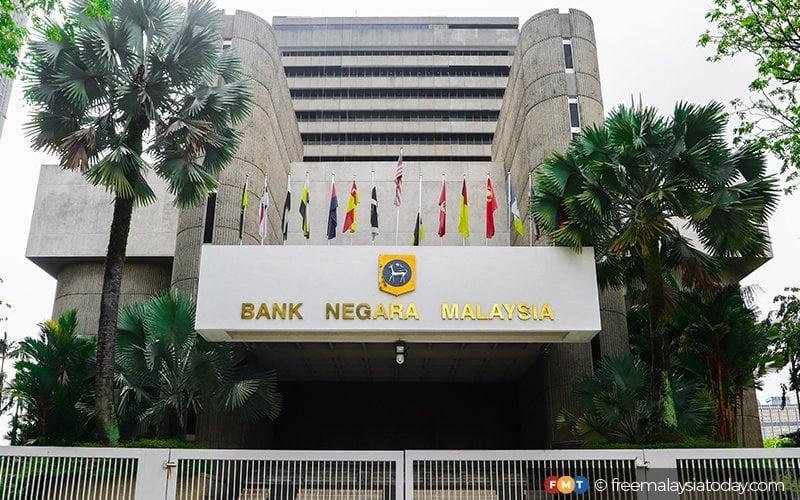
PETALING JAYA: Bank Negara Malaysia (BNM) is under no pressure to follow the lead of the Indonesian central bank in raising the overnight policy rate (OPR) at its Monetary Policy Committee (MPC) meeting today, economists said.
There is currently no need for any pre-emptive move to raise interest rates to keep inflation in check and stabilise the ringgit, said economist Geoffrey Williams.
“There is no pressure on BNM to raise interest rates as monetary policy in Malaysia has been well handled. Headline inflation is in line with historical averages, the economy is forecast to grow, and the financial system is stable.
Williams argues the OPR is not used as a tool to strengthen the ringgit. Instead, BNM has successfully used “market management” to stabilise the local currency.
He was referring to BNM and the government’s recent move to encourage government-linked companies, government-linked investment companies (GLICs), and other companies to repatriate their foreign earnings to help stem pressure on the ringgit.
BNM’s intervention in the forex market has also seen the ringgit stabilise and strengthen, he said. “So, it is not necessary to use interest rates as might be the case in other countries.
“The overriding concern will be to keep a steady hand on the tiller and guide the economy through the rest of the year given global headwinds outside of the control of Malaysian policymakers,” he said.
In a surprise move, Indonesia’s central bank raised its benchmark interest rate by 25 basis points to 6.25% on April 24 to shore up the weak rupiah. Bank Indonesia govenor Perry Warjiyo said the rate hike was “a pre-emptive and forward-looking step” to ensure inflation remains within its target.
The MPC concludes its two-day meeting today, with most economists expecting it to hold the OPR steady at 3%. BNM last raised the OPR in May last year, from 2.75% to 3%. It has held the benchmark rate steady since then.
Inflation under control
Malaysian Institute of Economic Research senior research fellow Shankaran Nambiar said there is no reason for BNM to be concerned about inflationary pressures at the moment as “the inflation rate has been moderate”.
“That being the case, there is no immediate pressure to hike the OPR.”
He also does not think BNM would want to use the OPR to “handle the ringgit”, at this point in time.
“It is true that the ringgit is undervalued. However, we can expect it to strengthen in the next few months with the semiconductor cycle picking up, and with stronger export numbers.
“As it stands, the central bank would prefer to focus on maintaining the growth momentum. BNM might want to wait and collect more data points before it decides to raise the OPR,” added Nambiar.
Three reasons for optimism
Bait Al-Amanah research director Benedict Weerasena agrees there is no pressure on BNM to raise or lower the OPR, citing three main reasons for his assessment.
“Firstly, the prevailing inflation trajectory does not present a risk to BNM’s targeted inflation rate. Malaysia’s headline inflation and core inflation remained benign at 1.8% and 1.7% respectively in March 2024.
“This suggests a limited pass-through of the impact of the sales and service tax (SST) rise from 6% to 8%. Thus, there is no need to tighten monetary policy for now,” he said.
Secondly, the ringgit is likely to strengthen in the second half of 2024, buoyed by structural reforms and positive growth prospects in addition to BNM’s various short-term remedial measures, he said.
In the medium term, the ringgit should also be “well supported” as the US Federal Reserve will likely ease its monetary policy towards the end of the year, he said.
He said there is a growing expectation that inflation in the US will move back down over the course of the year, resulting in the lowering of interest rates.
“Hence, the yield differentials (between the OPR and fed fund rate) over the coming months should gradually favour the ringgit. In a nutshell, there is no need to raise the OPR to prop up the ringgit for now,” said Weerasena.
Lastly, he expects Malaysia’s economic growth to continue improving in 2024, propelled by export recovery and resilient domestic demand supported by sustained employment and wage growth. - FMT



No comments:
Post a Comment
Note: Only a member of this blog may post a comment.